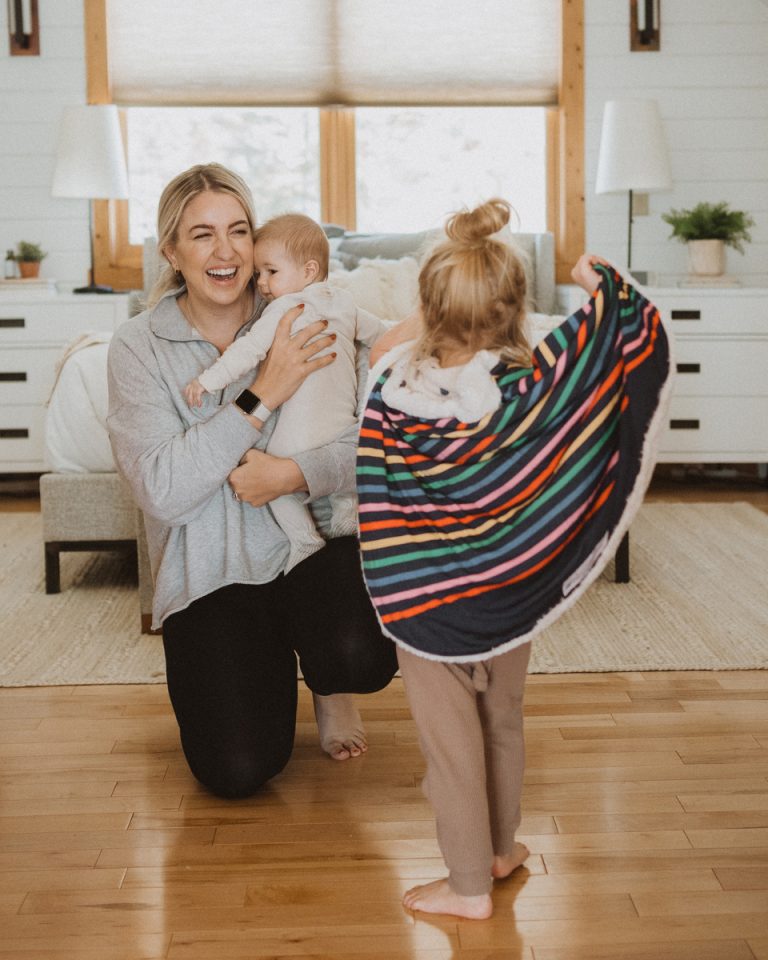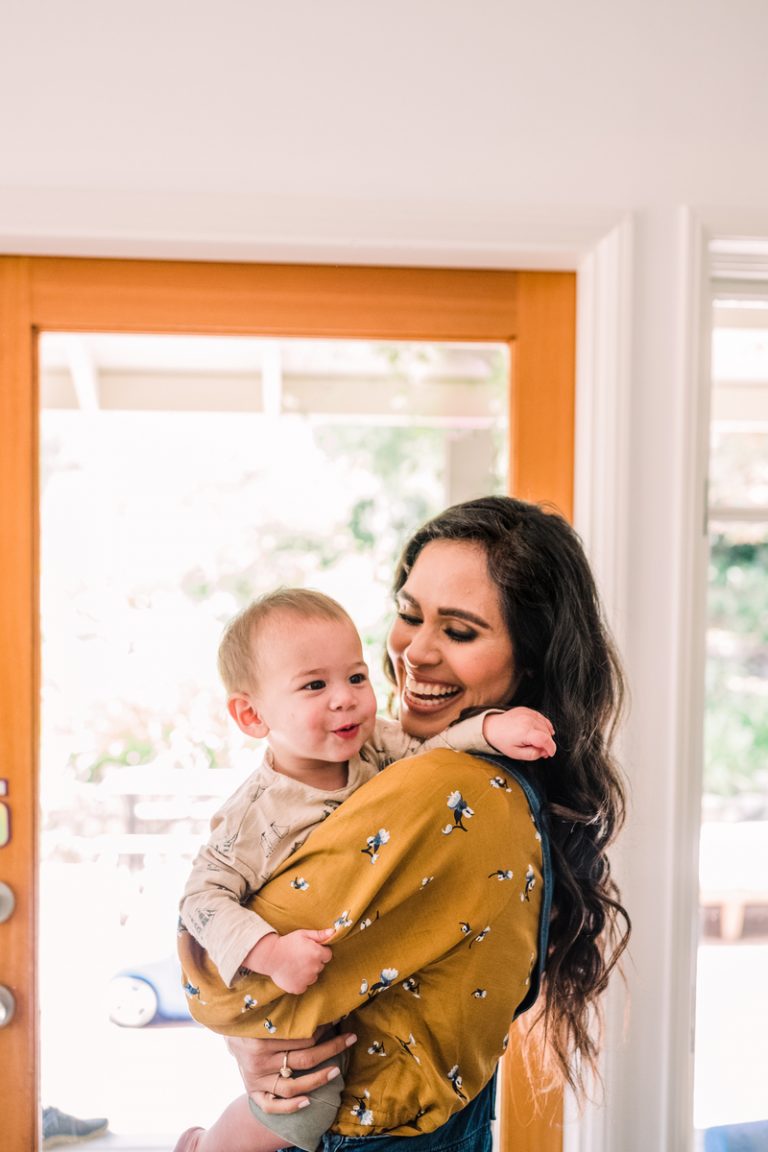
For many of us, childhood was a time in our lives filled with moments of nostalgia and joy. And many of those moments from our earlier years are ones that we dream of recreating for our own children. Of course, there are other moments we’d rather leave in the past. It’s in reflecting on these truths that I came to grow curious about and begin practicing the concept of gentle parenting.
What we remember from our childhood greatly impacts the way we parent. It’s safe to say that every generation of parenting is different, and some of the ones from the past might make you cringe today. New studies on how to raise your children come out daily and, to be honest, we are all just working with the best information we have at any given moment.
Featured image by Teal Thomsen.
One of my favorite parenting coaches, Destini Ann, has a quote that’s always guided my parenting practices: “If anyone is an expert on your family, it’s you.” And while I believe it, I have also felt extreme pressure to do a good job. Oftentimes, I find myself caught in the trap of thinking my children’s behavior is tied to my worth as a mother. Seriously—I die a little inside every time my child acts out in public.
Even though I know kids are kids, I still feel embarrassed and disappointed in myself when things go less than perfect.
I’ve learned through my personal parenting journey that half of the job is parenting myself, recognizing my triggers, and understanding what my values and boundaries are. I’ve also learned to show my kids empathy and respect within these boundaries. This is all part of the concept of gentle parenting.
To get a clearer, more comprehensive understanding of gentle parenting, I spoke with Dr. Becky Kennedy, a clinical psychologist and the founder of Good Inside. Dr. Kennedy spoke to me about how the concept has informed her own parenting philosophy, Good Inside Parenting. She says that, “Good Inside Parenting assumes that everyone is doing the best they can with the resources they have at the time.
“When kids struggle, we don’t see them as bad kids doing bad things, but rather as good kids having a hard time.”
“This shifts the mindset of how we intervene—from punishing behavior and to skill-building to change behavior. And let me be clear: there is nothing ‘soft’ about the Good Inside approach; we show parents how to be sturdy leaders, establish firm boundaries, and withstand a child’s protest and pushback.”
With that foundation to guide us, let’s dive deeper into gentle parenting—and how you can start practicing it yourself.
What is gentle parenting?
Gentle parenting is exactly what it sounds like: a kinder and gentler way to raise children. By definition, it means parenting without shame, blame, or punishment. It’s a partnership between parties, and according to Parents, both caregivers and children have a say in this collaborative style.
While there are plenty of ways to explain it, in my opinion, gentle parenting is about communicating with your kids and viewing them as unique individuals rather than extensions of yourself.
How do I start practicing gentle parenting?
Now that we’ve defined gentle parenting, you might be wondering where to begin. The good news is that Dr. Becky says it’s never too late to start. “The right time to change is always right now. Change is most effective when we make it easy and manageable. There are simple steps parents can take that have a huge impact in their family home.”
7 Key Gentle Parenting Tips
- Put empathy first. Remember your kids aren’t robots that can just follow orders. Put yourself in their shoes and the rest will follow.
- Set age-appropriate boundaries. What is your child capable of doing versus what you think they should be doing.
- Add reasons to your boundaries. “Because I said so” is not good enough, anymore!
- Be flexible. Balance out your rules and boundaries with leniency so your child doesn’t think everything is off limits.
- Use your words. Raising your voice is often the go-to when punishing your children, however, gentle parenting recommends using better wording to get your point across.
- Help them learn from their mistakes. If they err, make sure to teach them the right thing to do and reward them accordingly. Punish the action, not the child.
- Connect with your kids. Try and let down the guard that says you are the adult and they are the inferior. Collaboration over compliance.
How effective is gentle parenting?
Time to dive into the nitty gritty—does this technique work? After all, being soft with your kids could inevitably lead to excused bad behavior, right? Not exactly. Dr. Becky says there’s a misconception that “focusing on kids’ emotional life is ‘soft’—this couldn’t be more false.”
She continues, “we feel before we think and so a focus on feelings is all about helping people from where their troubles start. This focus is logical, practical, and effective.
“[Gentle Parenting] believes in boundaries, limits, and jobs—both for parents and kids. We teach parents how to embody their authority while showing their kids empathy and respect. You can be sturdy and warm, you can be kind and disciplined, you can set rules and empathize.”
As always, my opinions are my own and the way you choose to parent your children is entirely up to you! However, I hope that this article has helped you to see the value in gentle parenting, and even if you don’t fully make the change, perhaps you can incorporate some aspects of it into your day-to-day.



